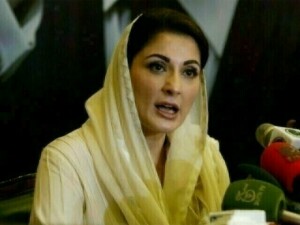Climate change: experts underscore need for greater cooperation among SAARC states
Experts at a roundtable discussion on Thursday underscored the need for cooperation among the regional countries especially the SAARC member states to deal with disasters caused due to climate change. The roundtable titled 'Natural Disasters and SAARC Protocols: Lessons for Pakistan?', was organised by Jinnah Institute in which the policy experts emphasised the need for greater regional cooperation between SAARC member states and building trust for timely and effective disaster response and humanitarian relief in South Asia.
The recent earthquake in Nepal which has claimed over 8,000 lives provided a starting point for the discussion, as participants evaluated the assistance offered by South Asian member states including Pakistan and India. The participants considered disaster preparedness in South Asia, and Pakistan in particular, while reviewing whether or not cooperation under the SAARC regime is realistic.
Speaking on the occasion, Oxfam Country Director Arif Jabbar cited the example of the ASEAN agreement on disaster management and response as a good model for managing regional disasters. He said that the ASEAN model falls within framework of a larger socio-economic charter, and benefited from the overall level of trust between ASEAN member states. Such a model would serve South Asia well, provided there was a degree of ownership, as well as respect for the sovereignty of individual members, he added.
Director Disaster Risk Reduction at the NDMA Waqar Uddin Siddiqui spoke of Pakistani efforts to provide relief assistance and medical aid to the people of Nepal. He explained that in addition to medicines, Pakistan had sent an army field hospital, doctors, paramedics, state of the art equipment, 3,000 ready-to-eat meal packs, 1,725 tents and 15 community shelters to the people of Nepal to help them in their hour of need.
On the subject of bolstering cooperation within the SAARC polity, Siddiqui was of the view that it was important that all countries ratify the convention on disaster management. He said that at the 18th SAARC summit in Kathmandu in 2014, moreover, member states had agreed to host a SAARC environment and disaster center, which was a positive step. Former Ambassador Shafqat Kakakhel explained that climate change only weakened the resilience of communities and countries to withstand shocks and differentiated between natural and manmade disasters.
He said that there was no compartmentalisation between the two because, quite often, calamities triggered by the effects of climate change tended to exacerbate the impact of natural disasters. For going forward, it is important for Pakistan to pursue greater policy coherence and strategy coordination between the two areas of disaster management, even if NDMA remained the focal point for disaster relief, he added.
Rashida Dohad, Program Director at the Omar Asghar Khan Foundation, said it was important to learn from the several humanitarian disasters that had struck Pakistan in the past 10 years. She said that policymakers should try and focus on those directly impacted by calamities in policy frameworks to address the situation on the ground. It had become clear after the 2005 earthquake that parallel institutions for response did not work, such as the establishment of ERRA and PERRA.
Marking ten years after the 2005 earthquake, she observed that an entire generation was still being schooled in makeshift tents. The focus of policy planning was usually on the immediate fallout from a disaster, and not on the long-term rehabilitation of affected communities, she added.
Environment lawyer Ahmad Rafay Alam said that Pakistan enjoys a robust policy framework from a legal perspective, adding disaster management is a provincial subject after the 18th Amendment and under this arrangement, the federal government works in tandem with provincial disaster relief agencies to coordinate implementation. On the issue of disaster relief financing, he stated that it was important to move away from post-disaster financing, often from borrowing on high interest rates, to pre-disaster budgeting for calamities based on sound risk assessment.





















Comments
Comments are closed.